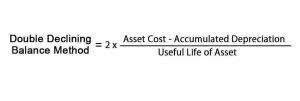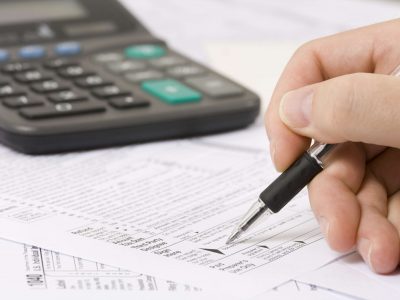
Let’s look at a practical example to help you understand how to apply the percentage of sales method. This method is helpful for contractors who need to make financial projections based on past performance. It’s especially useful for predicting the resources needed to handle upcoming projects and expenses. The meaning and purpose of the percentage of sales method and aging of accounts receivable can be confusing for individuals new to the finance world. To avoid confusion, one must clearly understand the critical differences between the two concepts. In this step, businesses hope to obtain positive percentages in all accounts.

Related AccountingTools Courses
Sync data, gain insights, and analyze performance right in Excel, Google Sheets, or the Cube platform. Easily calculate drop-off rates and learn how to increase conversion and close rates. Still, despite its shortcomings, it’s a useful method worth understanding and being able to apply.

Step 3

My Accounting Course is a world-class educational resource developed by experts to simplify accounting, finance, & investment analysis topics, so students and https://www.bookstime.com/ professionals can learn and propel their careers. The method also doesn’t account for step costing — when the cost of a product changes after a customer buys a quantity of that product over a discrete volume point. For instance, if a customer buys a product from a business that has a step cost at 5,000 units, then every unit beyond those first 5,000 comes at a discounted price. Well, one of the more popular, efficient ways to approach the situation would be to employ something known as the percent of sales method.
Company
- By looking over her records, she finds that for the month, her credit purchases come to $55,000 (with $5,000 cash).
- The percentage of sales method allows you to forecast financial changes based on previous sales and spending accounts.
- Previously published estimates, which are superseded by today’s release, are found in BEA’s archives.
- Today’s release includes estimates of GDP by industry, or value added—a measure of an industry’s contribution to GDP.
- It connects a company’s sales data to income accounts and balance sheets.
The table below shows the average revisions to the quarterly percent changes in real GDP between different estimate vintages, without regard to sign. Gross domestic product (GDP), or value added, is the value of the goods and services produced by the nation’s economy less the value of the goods and services used up in production. GDP is also equal to the sum of personal consumption expenditures, gross private domestic investment, net exports of goods and services, and government consumption expenditures and gross investment. For information pertaining to the registration status of 11 Financial, please contact the state securities regulators for those states in which 11 Financial maintains a registration filing. This forecasting helps the company allocate resources effectively and prepare for the expected financial demands of the coming year. The business projects that its sales will increase by 20% next year, resulting in projected sales of $1,200,000.
- It also can’t consider other financial changes like future bad debts that might impact sales.
- Chained-dollar values are not additive because the relative weights for a given period differ from those of the reference year.
- The old data won’t take into account any big new changes so the results wouldn’t be particularly useful.
- If your business needs a very rough picture of its financial future immediately, the percent of sales method is probably one of your better bets.
- Based on this data, the debit to the uncollectible accounts expense is 2% of net credit sales of $1 million, or $20,000.
- The downside to using the Percentage of Net Sales Method is that it can be subject to manipulation if sales figures are not properly monitored or reported accurately.
The percent-of-sales method of financial forecasting is a simple concept, explains Accounting Tools. Suppose your spending on raw materials per quarter is around one-third of your net sales revenue. For the past year, net sales – sales revenue less discounts and returns – has been $12 million for the year or $3 million per quarter. If you anticipate sales going up to $4.5 million per quarter next year, you can project spending $1.5 million a quarter on raw materials.

If you’re looking at your future finances, examining pieces in isolation isn’t sufficient. The usual forecasting approach is to draw up financial statements for the next quarter, next year and so on, SCORE notes. A projected income statement calculates how much money will flow in and out the percentage of sales method of your company over the coming year. The future balance sheet can show whether your liabilities are rising too high compared to assets. In the percentage of sales method, businesses assume that “bad debts are a function of the level of sales,” according to Michael O’Neill, a finance professor at Seattle Central Community College.
- While it offers a good starting point, it’s essential to use this method alongside other forecasting techniques.
- The rest-of-the-world (ROW) component of profits is measured as the difference between profits received from ROW and profits paid to ROW.
- Understanding how quickly customers pay back credit sales over different periods, such as 30, 60, and 90 days, also helps.
- The average of real GDP and real GDI over the same period was 2.3 percent, 0.4 percentage point higher than previously published.
- The company then uses the results of this method to make adjustments for the future based on their financial outlook.
- Following a few simple steps, you can forecast future revenues and expenses to ensure your business stays on track.
Disposable personal income increased $260.4 billion, or 5.0 percent, in the second quarter, an upward revision of $77.3 billion from the previous estimate. Real disposable personal income increased 2.4 percent, an upward revision of 1.4 percentage points. The GDP estimate released today is based on more complete source data than were available for the “second” estimate issued last month. In the second estimate, the increase in real GDP was also 3.0 percent. Imports, which are a subtraction in the calculation of GDP, were revised up.

When you can quickly create sales forecasts, you can adapt to sudden storms. Leverage the percentage of sales https://x.com/BooksTimeInc method to get a clear vision of your financial future so you can map strategies that work. Another key advantage of the percentage of sales method is that it helps develop high-quality estimates for items closely correlated with sales. Before making predictions regarding financial health, businesses must accumulate data concerning their expenses and sales. Then, they can utilize their accounting documents to find the figures. Organizing the data before calculating can improve the process’s efficiency and accuracy.
